Data Science Day 2025

Date: May 14, 2025
Time: 1:00 PM - 7:30 PM
Location: Rosensäle, Fürstengraben 27, 07743 Jena
The recordings of the presentations are available at the following link: https://www.db-thueringen.de/receive/dbt_mods_00066094
You can also download Book of Abstracts for Poster Session
Welcome to the Seventh Data Science Day in Jena!
Organized by the Institute of Computer Science, this event brings together data enthusiasts from academia and industry for a dynamic exchange of ideas. It's a platform to share knowledge, highlight cutting-edge solutions, and explore the challenges and opportunities shaping the future of data science.
Scheduled Talks
Below is a list of talks scheduled for the Data Science Day 2025:
🕐 1:00 PM - 1:05 PM
Welcome and Introduction [english]
Speaker: Joachim Giesen
🕐 1:05 PM - 2:00 PM
Keynote: Algorithms for Large Geospatial Data Sets [english]
Speaker: Stefan Funke, University of Stuttgart
Abstract: In recent years, there has been a dramatic growth of geospatial data collected by companies like Apple or Google but also in the course of collaborative projects like OpenStreetMap (OSM). In this talk I will touch upon some algorithmic challenges (and solutions) in the context of such large data sets.
☕🖼️💼 2:00 PM - 2:45 PM
Poster Session & Company Exhibition with Coffee Break
- Intershop Communications AG
- Jena Digital e. V.
- Accenture Technology Solutions GmbH
- d-fine GmbH
- ZEISS Group
- Spleenlab GmbH
- axxur GmbH
- Inverso GmbH
- Projekt Data Literacy Jena (DaLiJe)
- Forschungsdatenmanagement der Thüringer Hochschulen (TKFDM + FDM-HAWK)
- ELLIS unit Jena
- NFDI
🕐 2:45 PM - 3:10 PM
Presentation: Life Centricity: Mehr Zeit für das Wesentliche durch KI-Agenten [german]
Speaker: Mario Eckhardt
Company: Accenture GmbH
Abstract: Werden KI-Agenten die neue Armee nerviger Bots oder endlich das Versprechen intelligenter Assistenz erfüllen, die Kunden begeistert, Mitarbeiter entlastet und tatsächlichen Mehrwert erzielt? „Life Centricity“ legt den Fokus darauf mit KI-Agenten das Leben zu erleichtern und „virtuelle Avatare“ geben KI dafür eine Stimme und Gesicht.
🕐 3:10 PM - 3:35 PM
Presentation: Stellarium Sky Cultures - An example of transdisciplinary collaboration [english]
Speaker: Susanne M. Hoffmann, Michael Stifel Center, Friedrich Schiller University Jena
Abstract: Stellarium is a free, open-source planetarium software that is available in various independent flavours (desktop, mobile, web...). The applications for the humanities go far beyond the typical applications for amateur and professional astronomers for observation planning: Research results (data) from ethnology, anthropology, philologies/linguistics and the history of science can be contributed here directly by researchers. The presentation will briefly introduce the software and the challenges associated with transdisciplinarity.
🕐 3:35 PM - 4:00 PM
Presentation: Das Thüringer Zentrum für Lernende Systeme und Robotik - Vernetzung und Wissenstransfer für KI-Akteure in Thüringen [german]
Speaker: Oliver Mothes, Thuringian Center of Learning Systems and Robotics (TZLR)
Abstract: Das Thüringer Zentrum für Lernende Systeme und Robotik (TZLR) versteht sich als zentrale Anlaufstelle für alle Akteure aus Wirtschaft, Wissenschaft und Politik in Thüringen, die im Bereich der Künstlichen Intelligenz (KI) und Robotik tätig sind. Als gemeinnütziger Verein sowie Verbundprojekt zweier Thüringer Universitäten bündelt das TZLR vielfältige Kompetenzen in diesen Bereichen, fördert den Wissensaustausch und steigert die nationale sowie internationale Sichtbarkeit der Thüringer Forschung. Mit dem Impuls bekommen Sie einen Einblick in die vielfältigen Aktivitäten des TZLRs. Dazu zählen unter anderem die Durchführung von Workshops, die Initiierung von Transferprojekten sowie die Organisation von Veranstaltungen wie dem jährlichen Thüringer KI-Forum und anderen Austauschformaten. Erfahren Sie, wie das TZLR durch gezielte Vernetzung und praxisorientierten Wissenstransfer dazu beiträgt, die Innovationskraft Thüringens im Bereich der Künstlichen Intelligenz und Robotik nachhaltig zu stärken.
☕💼 4:00 PM - 4:45 PM
Company Exhibition with Coffee Break
🕐 4:45 PM - 5:30 PM
Capstone Presentation: Discrete Optimization Problems in Data Science - Practical Solutions for Hard Problems [english]
Speaker: Christian Komusiewicz
Abstract: Many tasks in Data Science and Machine Learning can be formulated as discrete optimization problems. Often, these optimization problems turn out to be algorithmically hard. Using example problems from network analysis and decision tree learning, we discuss how to obtain efficient solvers for such problems despite their hardness.
🎊 5:30 PM - 7:30 PM
Get-together
